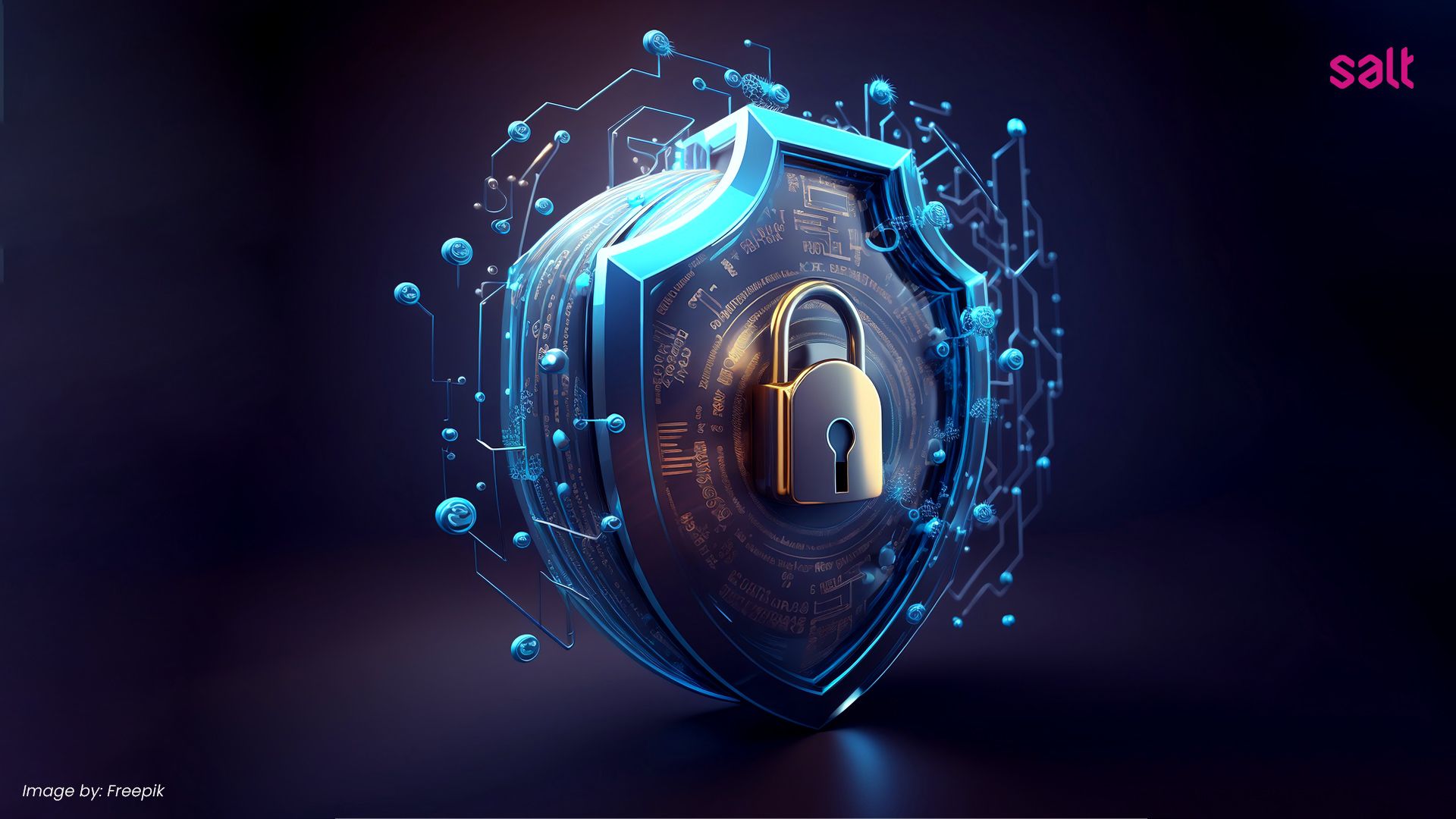As businesses increasingly integrate technology into their daily operations, the benefits in productivity, efficiency, and growth are undeniable. However, this growing reliance on digital tools also brings a surge in cybersecurity risks—threats that can disrupt workflows, expose sensitive information, and severely impact a company's reputation if not properly addressed.
Understanding the importance of cybersecurity is essential for businesses aiming to protect their assets and maintain customer trust. In this article, we explore the growing significance of cybersecurity, the threats companies face, and the best practices for safeguarding digital assets.
Understanding Cybersecurity
Cybersecurity refers to the practices, technologies, and processes designed to protect computer systems, networks, and data from unauthorized access, cyberattacks, and damage. It encompasses various domains, including network security, cloud security, endpoint protection, and data encryption. A strong cybersecurity framework ensures the confidentiality, integrity, and availability of information.
The cybersecurity landscape constantly evolves, with hackers developing more sophisticated attack techniques. Businesses must adopt proactive security measures to counter these threats effectively.
The Rising Threat Landscape
Cyberattacks are on the rise, affecting businesses across industries. Some of the most common and emerging threats include:
- Ransomware Attacks
Malicious software encrypts a company's data, demanding ransoms for decryption. These attacks have crippled major corporations and cost businesses millions in ransom payments and lost productivity. - Phishing Scams
Cybercriminals use deceptive emails and fake websites to trick employees into disclosing sensitive information such as passwords or financial details. - Data Breaches
Unauthorized access to sensitive customer or business data can result in severe financial and reputational damage. - Insider Threats
Whether malicious or negligent, employees can pose security risks by mishandling confidential information or falling victim to cyber scams. - AI-Powered Cyber Threats
The use of artificial intelligence in cyberattacks, such as deepfake scams and automated hacking, is increasing the sophistication of cybercrime.
Companies must stay informed about the latest cyber threats and continuously update their security measures to combat these risks.
Implications of Cybersecurity Breaches
A successful cyberattack can have devastating consequences for businesses, including:
- Financial Losses
Cyberattacks can result in direct financial costs due to ransom payments, fraud, or business interruptions. Small businesses often suffer the most, with cyber incidents potentially leading to bankruptcy. - Reputational Damage
A data breach can erode customer trust and damage a company's brand, making it challenging to retain and attract customers. - Regulatory Penalties
Many industries are subject to strict data protection laws like GDPR and HIPAA. Failing to comply can result in hefty fines and legal repercussions. - Operational Disruptions
Cyberattacks can shut down business operations, causing significant downtime and loss of productivity.
Key Components of a Robust Cybersecurity Strategy
To mitigate cybersecurity risks, businesses should implement a comprehensive security strategy that includes:
- Risk Assessment
Identifying vulnerabilities within the organization's IT infrastructure and taking proactive measures to address them. - Data Protection Measures
Implementing encryption, backup strategies, and access controls to safeguard sensitive data. - Network Security
Using firewalls, intrusion detection systems, and secure Wi-Fi protocols to prevent unauthorized access. - Multi-Factor Authentication (MFA)
Requiring multiple forms of verification before granting access to critical systems. - Regular Security Audits
Conducting periodic cybersecurity assessments to identify and fix potential weaknesses. - Cybersecurity Awareness Training
Educating employees on recognizing cyber threats and practicing good security hygiene. - Incident Response Plan
Establishing protocols for handling cyber incidents to minimize damage and recover quickly.
The Role of Cyber Resilience
While cybersecurity focuses on preventing attacks, cyber resilience ensures that businesses can recover quickly after a breach. Cyber resilience includes:
- Business Continuity Planning
Ensuring critical operations continue despite cyber incidents. - Disaster Recovery Measures
Having backups and restoration procedures in place to minimize downtime. - Adaptive Security Measures
Constantly updating security protocols to counter emerging threats.
A cyber-resilient organization can withstand cyberattacks with minimal disruption, maintaining customer trust and operational stability.
Regulatory and Compliance in Cybersecurity
Businesses must adhere to industry regulations and cybersecurity frameworks to avoid legal consequences and enhance security. Compliance with these regulations also helps build trust with customers and business partners. Below are some key international regulations that companies should follow:
- General Data Protection Regulation (GDPR)
Regulates data protection and privacy in the European Union, requiring companies to strictly manage and protect users' personal data. - Health Insurance Portability and Accountability Act (HIPAA)
Protects patient health information in the United States, ensuring that medical data is securely stored and transmitted. - National Institute of Standards and Technology (NIST) Framework
Provides guidelines for organizations to manage cybersecurity risks and strengthen resilience against cyber threats. - Payment Card Industry Data Security Standard (PCI DSS)
Businesses handling credit card transactions must be required to implement security measures to prevent financial data theft.
Beyond regulatory compliance, companies should also adopt industry best practices, such as ISO 27001, to ensure their cybersecurity policies and practices meet global standards. By complying with these regulations, businesses can avoid significant fines, enhance data protection, and ensure customer trust and loyalty.
Questions about Cybersecurity for Modern Businesses
- What is Cybersecurity, and Why is It Important?
Cybersecurity protects systems, networks, and data from digital threats, ensuring business continuity and safeguarding sensitive information. - What are the Most Common Types of Cyber Threats?
Common threats include ransomware, phishing attacks, data breaches, and insider threats. - How Can Small Businesses Protect Themselves from Cyberattacks?
Implementing security measures like firewalls, multi-factor authentication, and employee training can significantly reduce risks. - What is the Role of Cybersecurity Compliance?
Compliance with regulations ensures legal protection and promotes best security practices. - How Can SALT Help Businesses Improve Their Cybersecurity?
SALT offers customized security solutions, threat protection, and expert support to help businesses strengthen their defenses. - What Steps Should a Company Take after a Cyberattack?
Companies should contain the breach, notify stakeholders, assess damages, and enhance security to prevent future incidents. - Why is Cyber Resilience Important?
Cyber resilience ensures that businesses can recover quickly from cyber incidents, minimizing operational disruptions. - How Can I Get Started with SALT's Cybersecurity Services?
Contact SALT today to schedule a consultation and secure your business against cyber threats.
SALT: Your Mission-Critical Technology Partner in Cybersecurity
Cyber threats are growing in complexity, making strong cybersecurity not just important but essential. To safeguard their data, finances, and reputation, businesses need to take a proactive approach by implementing resilient security strategies.
Navigating cybersecurity challenges requires expert guidance and tailored solutions. SALT is a trusted cybersecurity partner that provides:
- Comprehensive Security Assessments: Identifying and mitigating potential risks in your IT environment.
- Advanced Threat Protection: Deploying state-of-the-art security measures to defend against cyber threats.
- Incident Response & Recovery: Helping businesses recover quickly from cyberattacks with minimal disruption.
- Ongoing Cybersecurity Support: Offering continuous monitoring and security updates to ensure long-term protection.
By implementing a strong cybersecurity strategy and partnering with experts like SALT, organizations can mitigate risks, enhance resilience, and ensure a secure digital future.
Don't wait until a cyberattack disrupts your business. Take action today! Contact SALT to discuss your cybersecurity needs and build a strong defense against evolving threats.





